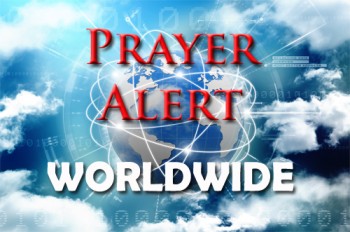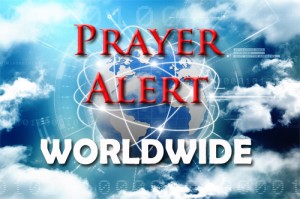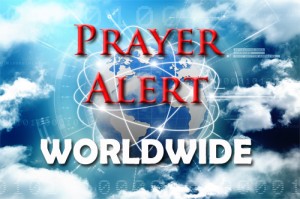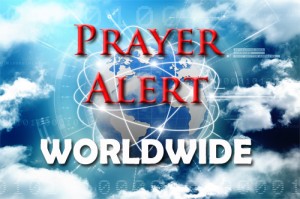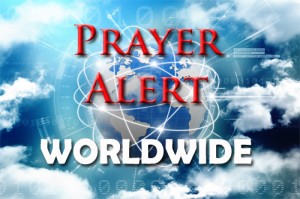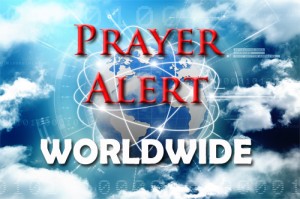Displaying items by tag: Maldives
Maldives: pray for change
The Maldives is Asia's smallest country by area and population, known for its lucrative tourism industry. Despite tourism, it is an extremely closed country which boasts of being 100 percent Islam and heavily represses Christian influence. Only a handful of secret believers live in the country, which is regarded as ‘fertile ground for recruitment’ to radical Islam. Dozens of Maldivians have joined IS. The 2019 elections had a surprising result when opposition leader Ibrahim Mohamed Solih defeated the former president Abdulla Yameen, who now faces corruption charges. The new government has begun reforms. Give praise for the shake-up in the government. Pray that this may shake up the nation’s repressive laws and human rights abuses. Conversion to Christianity results in a loss of citizenship. Churches and Christian gatherings do not officially exist, and believers live in fear of being discovered. Pray for safety and religious freedom in the Maldives.
Maldives: break the cycle of impunity
An ethical cloud is over the Maldives, an idyllic tropical holiday destination. Islands and submerged coral lagoons have been leased out to tourism developers in no-bid deals. At least US$79 million from the lease fees was embezzled into private bank accounts. The scandal involves local businessmen and international hotel operators, and leads all the way to outgoing president Abdulla Yameen. Transparency International and Transparency Maldives urge all politicians and civil servants involved in the transition to the newly-elected government to ensure that there are no further secret deals to allow those connected to corruption to escape accountability. It was revealed that in the eighteen months before the 23 September election which ended President Yameen’s presidency, senior government officials leased out 50+ islands at a fraction of the original price, and Yameen anonymously received US$1.5 million. See also
Maldives: army will guarantee election result
The British high commissioner tweeted on 26 September that Maldivians were ‘looking forward to the election commission formally confirming the results of the presidential election on 23 September, so that an orderly transfer of power can begin’. However Abdulla Yameen, who was defeated, was ‘preparing to annul’ the vote that raised Ibrahim Mohamed Solih as president. The police and army said they will act to guarantee the election result. After Yameen conceded defeat on election day, political prisoners were released, exiled leaders said they planned to return, and media outlets that closed during his rule said they would re-open. His five-year term was marred by the arrest of scores of activists, opposition leaders being charged with trumped up terrorism offences, and sharp restrictions on free expression. Many are apprehensive and unwilling to believe that a leader who jailed political rivals and top judges will go willingly.
Maldives: flashpoint in Indo-Chinese rivalry
A power struggle in the Maldives is taking centre stage in a battle for regional influence between India and China. Maldives President Yameen declared a state of emergency after the supreme court ordered him to free political prisoners and opposition politicians he jailed. Security forces then stormed the court and arrested two judges and a former leader. The remaining judges annulled a previous ruling. It is being called an assault on democracy. The political drama sparked concern in India, which issued a strong statement saying it is imperative for the government to adhere to a free trade agreement it made with the Maldives. India views China as a geopolitical foe in Asia and is pushing to maintain geo-strategic supremacy in the Indian Ocean, with backing from the US and Japan. Meanwhile, it has expanded its influence by building ports in Sri Lanka, Pakistan and Djibouti (now home to its first overseas military base). See also
Maldives: rising extremism
Behind the facade of a ‘tropical paradise’ are tragic realities: the highest divorce rate in the world, rising crime, widespread child abuse, pervasive drug use and over 200 young people joining IS. All citizens are required to be Muslim. There are no churches, and there is no official access to God’s Word. The Gospel of Luke and Acts are currently available in Dhivehi, but are not permitted to enter the country. No mission work or Christian literature has ever been legally allowed within the islands. Widespread traditional beliefs in spirits combined with Islam leave many almost entirely untouched by the Gospel, trapped in fear and without access to Jesus. Pray for miraculous opportunities for Maldivians to hear the Gospel, and that the government's attempts to silence it may instead raise up a Maldivian church.
Maldives: picture of a church causes offence
Social studies textbooks for grades 1-4 were recalled after an outcry from concerned parents over a page illustrating two Christian churches. The books had been introduced by the new management at Gateway International School, without official approval from the appropriate Maldivian ministry. A local news website accused the school of being ‘a gateway to turning Maldivians into Christians’. Thomas Muller, persecution analyst at World Watch Research, commented, ‘That the mere picture of a church is seen as promoting Christianity and potential proselytism shows how deeply ingrained the fear of the Muslim majority is. The appointment of a radical cleric to the highest Islamic Council (reported last month) also fits this pattern and will lead expatriate Christians to exercise even more caution, and indigenous Christians to take the utmost care in remaining undiscovered.’
